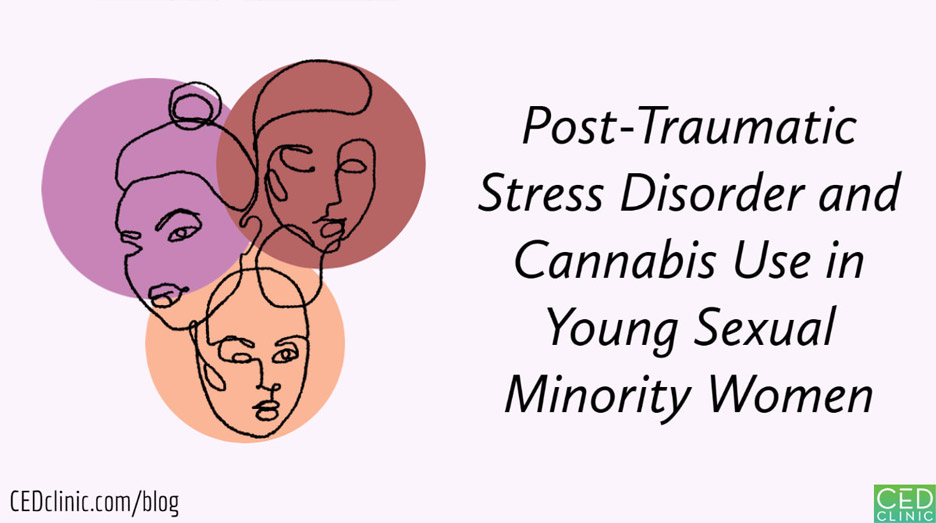Sexual minority women (SMW, i.e. lesbian, bisexual, and other women who partner with women) experience trauma exposure and posttraumatic stress disorder (PTSD) more frequently than heterosexual women. They are also more prone to substance use, including cannabis consumption. However, few research has examined the relationships between PTSD and cannabis use in this population.
The very first study focusing on this topic was conducted in 2017 by researchers at the University of Washington. This study included 90 self-identified sexual minority (34.4% lesbian and 48.9% bisexual) young adult women who suffered from trauma in the past. It evaluated the daily-level associations between their PTSD symptoms and cannabis uses. Participants were assessed at two measurement periods one year apart, each consisting of 14 consecutive daily assessments.
Several insights emerged. In total, cannabis use occurred on 22.8% of the days. A person’s level of PTSD symptom severity averaged over all assessed days was strongly associated with daily likelihood of cannabis use. In other words, among the young SMW surveyed, those with higher averaged PTSD scores over time had a higher likelihood of using cannabis on any given day. However, daily deviation from one’s average PTSD score was not associated with cannabis use on the same day.
That is, for a particular woman, the likelihood of cannabis use did not significantly increase on days she reported more PTSD symptoms than her average.
More research would be necessary to further elucidate the relationship between cannabis use and PTSD. However, it is already evident from the above preliminary study that the risk for cannabis use and abuse should be a consideration when intervention strategies for SMW with PTSD are developed.

